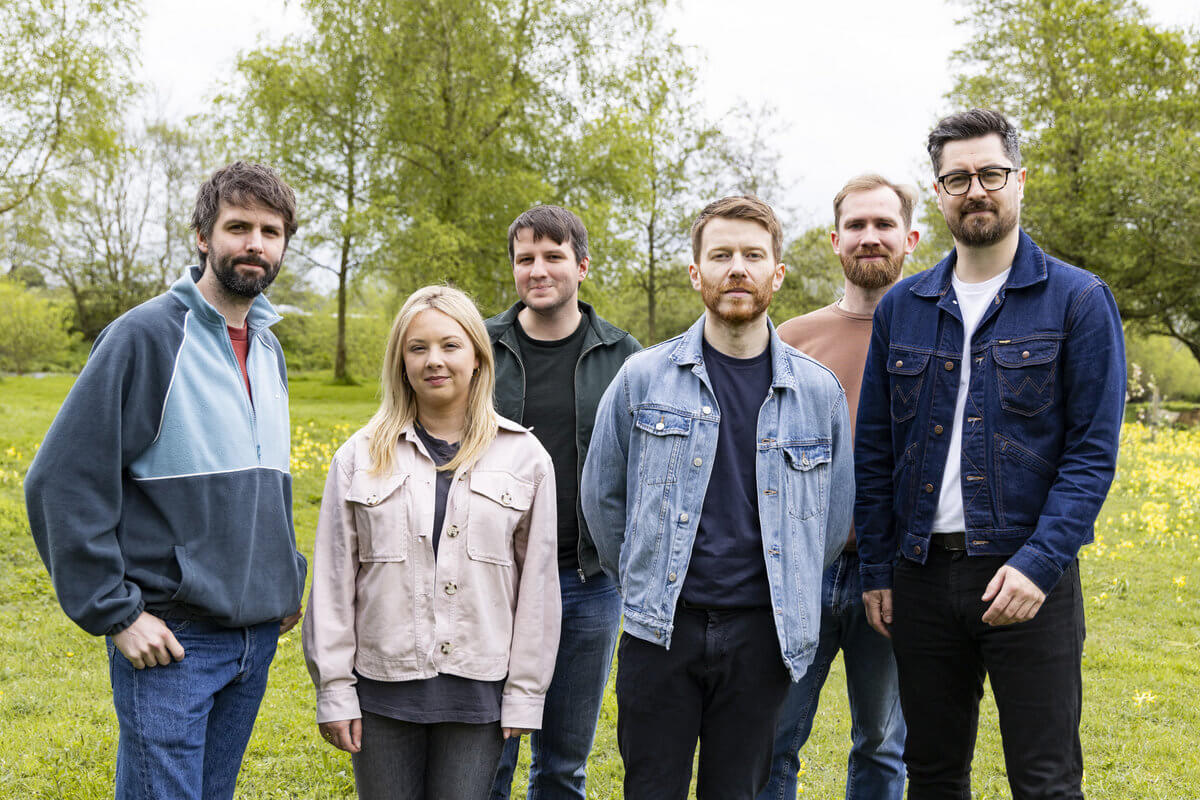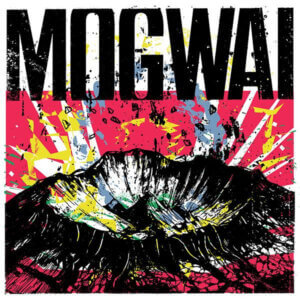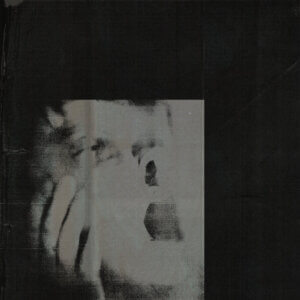Silverbacks continue their winning streak

In the short space of four years, Silverbacks have delivered three electrifying and brilliantly beguiling records. They arrived with an eruption of artistic assuredness on their accomplished debut Fad (2020) and further expanded upon that palette with radiant tonal experiments on Archive Material. Their latest, Easy Being a Winner, hears the Irish six-piece further elevate their musicianship and, much like the album’s striking artwork, see them add even more texture and color to their already unique exuberance. Across the eleven tracks, which feature even more luminous vocals from Emma Hanlon, Silverbacks effectively blend different genres, tones, atmospheres and capture a myriad of moods. In this regard, Easy Being a Winner is a record abundant with fun, heart and irresistible riffs.
Northern Transmissions spoke to one half of the band, Daniel O’Kelly (lead vocals and guitar), Peadar Kearney (guitar) and Paul Leamy (bass) a few days before the release of Silverback’s third LP, Easy Being a Winner. The conversation explored the ways that their creative practice has evolved over the years, collaborating with Daniel Fox, how they engage with outside perceptions of the band and much more. Throughout, O’Kelly, Kearney and Leamy oscillate between being thoughtful and insightful in articulating their approaches with the band and playfully pulling quips at one another in an extremely endearing way. There’s a great chemistry between the bandmates, which extends to their fellow Silverbacks Kilian O’Kelly (guitarist and brother of Daniel), Emma Hanlon (vocals) and Gary Wickham (drums), that seeps into their exhilarating arrangements.
NT: I have to say, from my first listen, Easy Being a Winner is possibly my favorite SIlverbacks album. It’s absolutely incredible. I’ve really loved listening to it and am so excited for my friends to hear it! How’re you feeling about it coming out?
Paul Leamy: Pretty excited! It was my first time doing an album with them, so I’m very excited.
Daniel O’Kelly: Thanks for the kind words, Zara. I think it’s my favorite album, as well. Yeah, I’m excited. More excited than I was for the last two Silverbacks albums. I think with the last two I was more apprehensive because I worried a lot more about what people think but I don’t do that as much.
Peadar: Kearney: I’m really, really glad for the album to be coming out. I think it’s a lot different from the other ones, so I’m looking forward to seeing what people think of it. It feels like it’s a good while in the making, as well, because “Selling Shovels” was the first song we learned together. It was the first new song off the record that we learned together and we were doing that around Summer 2022, maybe? If we weren’t playing it live then we were trying to learn it. That’s over two years ago now, so it felt like the process between learning the tunes and getting them recorded was quite long. Yeah, I’m just looking forward to having it out now and for people to hear it.
NT: There have been three Silverbacks albums in four years, each recorded with Daniel Fox. I was interested to see in the accompanying materials for Easy Being a Winner that you wanted to adopt a more relaxed approach to the studio. How different was the overall experience of working on this album compared to Fad and Archive Material?
Peadar: Kearney: The process of recording the three albums was very different each time. I suppose [Fad] was us getting into the studio whenever we could over a longer period of time. Say, when we recorded “Dunkirk” first, that wasn’t necessarily being recorded for the album, it was to put out a single’ Likewise for “Just In The Band”, as well. Then we did two more sessions and we had enough to put out a record. For Archive Material, it was all done during the height of lockdown, so it was done over a really short and intense period of time. It was maybe done in like seven or eight days?
Daniel O’Kelly: Yeah and it wasn’t that many more days for mixing. We did it between the little periods where lockdown rules relaxed and things like that. It was fairly intense. We did that one more for ourselves, I guess. We were also maybe a bit over ambitious about what we could achieve in a short period of time.
Peadar: Kearney: Then, the process between the tunes being written, learning them and going into the studio was a little bit longer this time. This is probably the slowest and most patient build-up and preparation to recording and getting an album together that we’ve done so far.
NT: And Paul, at what stage in the album’s development did you officially join the band? Paul Leamy: It was the start of the summer of 2023, I think, when Gary [Wickham, drummer] reached out on behalf of the lads. I think at that point they might have had the first half of the recording done. Am I right in saying that?
Daniel O’Kelly: It was less. I think it was “Selling Shovels”, “Songs About Divide” and the bare bones of another one. Peadar might know, he has a better memory than me!
Peadar: Kearney: “Spinning Jenny” was the other one.
Daniel O’Kelly: Yeah, so we had three tracks when Paul joined.
Paul Leamy: Ok, yeah, so not as many as I first thought, you were, a little less than halfway through the album recording stage at that point. That’s just the recording that was happening, then obviously the mixing and mastering took place, as well. Everything was a bit spread out, I suppose.
NT: I know you’ve been friends with the band for a long time before joining but what was it like for you to become fully integrated because they had released two albums at that point and perhaps had a particular rhythm of working even though each album was different to make.
Paul Leamy: I didn’t find it too bad because knowing the lads beforehand made it way easier. As friends, you’d be hanging out and talking about stuff, so I was aware of what was going on in past albums. I was aware of the process and would even dip into the studio with them before I was playing with them, that sort of thing was already going on so I was able to at least get a feel for what was happening. But you know, I found it pretty comfortable sliding in. I hope the rest of the lads did, I think they did!
Daniel O’Kelly: He’s still on probation. He doesn’t know it, though!
Peadar Kearney: We have a WhatsApp group that Paul isn’t in and we talk about him in it.
Daniel O’Kelly: It’s called the OGs! But, I don’t know if you know but Paul was in a band with Gary before Gary was in Silverbacks. So, Paul had, for years, been playing with Gary and then he was also in a band with Peadar before Silverbacks. He was well used to playing with the lads. Then, also I know Paul longer than I know Gary. When we were in college, Peadar and I had a music technology project to do and Paul came in to help us because it was our first time working with the studio and Paul was pretty well versed on those side of things. He helped us work the studio and the mixing desk and all that. That would have been back in 2010.
NT: I’m curious to hear about the planning that went into Easy Being a Winner. Something I’ve always loved about Silverbacks is the broad range of influences and how dynamic the songs are. You mentioned WhatsApp groups earlier, is that how you primarily communicate and plan to get into the studio because you clearly use your time effectively and efficiently. Also, there’s a lot of logistical components you have to consider given that Dan lives in Paris and the rest of the band are in Ireland and each of you have busy lives outside of the band.
Daniel O’Kelly: Yeah, it’s probably one of the reasons why we took our time with this album. It made sense to take our time because of logistical challenges and personal lives and things like that. In terms of the pre-production, usually we have song or demo ideas and then, I’m not this part anymore because I miss about 80% of the rehearsals, but the lads will then pick apart the demos or rough ideas that Kilian [O’Kelly, guitarist] and I have shared that they like.
Peadar Kearney: Even before it gets to the rehearsal stage, Dan and Kilian make loads of demos, really fleshed-out demos.
Daniel O’Kelly: Yeah, Kilian and I write a lot of demos. We bounce files back and forth and write songs and we fire them across from Paris to Ireland. We’ve been doing it for years where we try to write a couple of songs a week and we bounce things back and forth. Then, what we do is we have a WhatsApp group called “No Chat, Only Demos” and we send songs in there and sometimes we make a Soundcloud playlist and the lads will be like, ‘Oh yeah, this one’s cool,’ and if they don’t like it they just won’t say anything! Then it goes to the rehearsal period, which I’m less involved in now.
Peadar Kearney: Let’s say the process of demos that will be learned for the album, there’s usually about thirty or more contenders of demos to choose from in a Soundcloud playlist. Then, in terms of the track choice, it’s relatively straightforward to pick the 10 songs that are quite clearly the 10 best. Then there will be maybe five different tunes that people like and three will get picked out of that. The vast majority of time, by the time they’re whittled down and once we get around to learning a song, on this record anyway, there was very little messing around with learning songs. I don’t think we learned any extra songs for this record that weren’t the eleven that we picked. Actually, we went in with ten songs and then “No Rivers Around Here” was added at the very, very end of recording.
But, how we learned tunes for this record, because Dan hasn’t been there, say from my parts, Kilian will teach me the demo and then I might change some small things but 90% of it is probably what Kilian did already. For bass and drums, I can’t really speak to that, but it’s more about learning the songs in the room as a band together. Once we have learnt them, the window of time between the practice space to going into the studio and recording them is relatively small. We played very few of these tunes live, almost none. I think we played “Selling Shovels” a little bit last year, maybe also “Spinning Jenny” when we played it in New York when we were over there last year.
Daniel O’Kelly: We only played it once because I forgot the lyrics and we pulled it!
Peadar Kearney: Oh, yeah! Very few of these songs got played live before we went into the studio. So yeah, that was it!
Daniel O’Kelly: That’s pre-production in detail!
NT: Wow, that’s amazing to have had 30 or so demos to choose from. Were there any songs that you were really sad to have to cut from the tracklist this time around and want on the next record or to sneak into the live shows?
Daniel O’Kelly: I think like Peadar said, this one was fairly straightforward. We had like the skeleton, you know, the goalkeeper, center-back, midfield and striker, and then there were the buffer songs where we were toying around. In terms of the spine, nothing was missing. I think it’s more, not the fillers, but the ones that flesh out the spine and make the album a little more cohesive, usually there is a few songs that might have been better to mix together and all that. But one of us is ever disappointed because we know that the goal of this band is to record and release as much material as possible and work to a stage where we can eventually record albums ourselves and I go to a homemade studio and turn them out, Wilco style! So, any songs that don’t get released, it’s likely that we wont be able to continue to record and write songs forever so it’s always good to have a database of tracks to rely on if we ever run out of creativity. Which happens to most people.
Peadar Kearney: For example, that was the case for “Songs About Divide”. That was originally a contender for Fad. That’s a demo that’s about five or six years old, maybe. That was a demo that didn’t get picked for Fad and it got put back into contention this time and ended up on the album.
NT: You worked with Daniel Fox for the third time. Aside from being a member of Gilla Band, he’s become a really in-demand producer and has worked with lots of different artists which is so exciting to see. Across the three Silverbacks albums, the listener can trace the ways that your songwriting has evolved over the years. Have you noticed different ways that Fox has grown as a producer over the years from Fad to Easy Being a Winner?
Daniel O’Kelly: The approach is probably that we’re just way more familiar with each other and friendly. There’s that personal relationship aspect of it. He’s seen us argue and have some fairly heated discussions about certain parts of the album. Not so much with this one, more so during Archive Material. He’s been at the frontline of some fairly intense moments between myself and my brother! There’s that part. I message him sometimes, we’re mates, which is nice. He didn’t get an invite to my wedding, neither did Paul. I feel guilty about that. That’s the personal relationship side to it, on the working side, Dan would also tell you that he’s a better producer and we’ve gotten better at recording in the studio, too. In that aspect of things, we’ve grown together.
One of the reasons we wanted to make this album with him was, because we did discuss whether we wanted to do it with him or try working with other people, but I think what we really wanted to do was, because Archive was quite rushed, and was recorded under an external environment that was fairly tough to record in and Fad was quite sporadic, it was only fair for us to make something with Dan by giving us more time in the studio. It just felt like this needed at least one more chapter, maybe there will be many more with him, but it would have been a shame to have ended it at chapter two.
Peadar Kearney: That sounds like we’re not going to record with him anymore!
Daniel O’Kelly: Well, we will see what the critics say!
Peadar Kearney: In general, recording with Dan now is very easy and straightforward. It’s very streamlined and I find it quite easy to go in and for things to sound good. He’ll make the guitar sound good quite quickly. All the gear he has is really, really nice. Of course, as well, he has a really good ear for guitar sounds. Speaking from a personal experience, how everything sounds, he just seems to get the guitar sound really good so quickly. Generally, I find it extremely easy to work with him. And, you’ll know if a take was bad with him quickly because he’ll just tell you to do it again straight away. That allows you to get your head down and get through it in a relatively straightforward way, which I like.
Daniel O’Kelly: I didn’t want to insinuate that we weren’t going to do the next album with him, but it’s good to keep on his toes anyway!
NT: You spoke earlier about building your confidence and the impact of critical engagement with your albums. In the materials for Easy Being a Winner, there’s a quote from Kilian about how you feel like you’ve finally comfortably settled into your sound. I was interested to hear how people putting labels on your music has impacted your own relationship with your work. And, seven years in, how that aspect and the way you take on people’s perceptions has changed?
Daniel O’Kelly: I would say how I've changed or evolved is probably different to Peadar. I think Kilian and I needed it… I think the dynamic that we have in the band is great and is really helpful for Kilian and myself, because Gary and Peadar have always never seemed to really care about what other people thought. It was nice if it was positive, there was this happiness and confidence in our own output and what we’re doing. Is that right, Peadar?
Peadar Kearney: Oh yeah, 100%. I suppose, in terms of worrying about reviews and stuff like that, I would have never really worried about press and things like that with Silverbacks. I’ve always just wanted us to get booked for nice shows and for people to like our albums, but it’s not something that worries me. Good reviews are nice and I tend to not care about bad reviews. In general, I try to not have an external process of evaluation for things that are important to me. If how someone writes about our music would make me feel one way or another, I’d probably be quite disappointed.
I was involved in musical projects before Silverbacks that I really, really wanted to succeed. I really wanted to do well with them but didn’t. I was probably quite disappointed by press and stuff like that back then. But, by the time I started playing with Silverbacks, I was over things like that. I think it’s really important for us to get press, people to like us and for it to be well received, but it’s not the be-all and end-all. If we can put out records that we like and play nice shows, I’ll be happy to keep on doing that!
NT: Yeah, completely. I also think that with time and experience, the idea of what success looks like changes so much. You’ve been able to make music exactly how you want to and put it out when it’s ready or right for you to tour it. Within that, you also afford yourselves the space to really have fun and texture your arrangements with lots of wonderful different tonal elements and palettes. That sounds great to me!
Daniel O’Kelly: Yeah, 100%. I think you touched on a good thing there where I think something that Kilian and I have thought about a few times anyway, when we’re at the demo stage is that we were maybe a bit disappointed and upset with certain elements of Fad; how Fad and Archive was received. I felt like there was this trend for people to say that we were a bit on the nose with where we took the musical inspiration from. Or, it was a collection or mix of imitations of bands that we like. That stuff really got to me, at the time, because I felt that maybe we were honest with the stuff that we took inspiration from. But, when I was looking at the bands around us, I didn’t feel that we were any more derivative than those other bands. And so, I was thinking for album two, and even for album three at times, as a kind of ‘Fuck You’ to that, I was thinking, ‘Well, let’s just make a concept album. If we want, we could just do 12 songs where it is like, I don’t know, a mellotron in each song and like a six, eight rhythm and we have a motif melody that comes back and goes away. Some mad abstract thing, just showing that we can do it. Then after that, we can hop back into what we enjoy doing’. Kilian talked me out of it fairly quickly!
Peadar Kearney: It’s like doing a spite album.
Daniel O’Kelly: A spite album, yeah. Or a krautrock album of just like… Or an A side, one of the ideas I said to Kilian was that we should do like four or five sort of country, Wilco-like jams and then when you flip it to side B, it’s just like a 10-minute Krautrock instrumental. They’re for the joke albums, they’ll come later.
NT: Absolutely! Can’t wait for that. You mentioned how you were performing “Selling Shovels” back in 2022. I’ve seen a few Silverbacks shows and they’re always so much fun. With playing songs in their early stages at shows, does that ever inform how those compositions are developed in the studio?
Peadar Kearney: Ideally, if we could, we would learn everything and play it at shows first. Definitely from my experience, if we could know what we want to play, learn it and then get more comfortable with it live and work things out that way, maybe tweak the structure of the song and stuff like that. That would be cool. That’s what happened in the past with “Just In The Band”, that was one that really benefited from being played live. We have played that at nearly every show since. Then, “Selling Shovels”, we only played a few shows over that period, but I think that did help a bit.
I think because we, as a six-piece, don’t get to practice that much just to learn songs. When all of us are together now, because obviously Dan lives abroad, when we do get to play together, it’s usually Dan flying in a day early, and we make sure we still know the songs and then we do a gig the next day. We don’t really have the luxury of learning stuff and then road testing it. If we could do that, that would be so good. It’d be really useful but we just have to do without it.
Daniel O’Kelly: And, if there’s a positive angle to that, what is fun with that is sometimes we end-up playing a song very differently to how it sounds on the record. It’s usually much faster. But there are ones, like, for example, “Archive Material” was one that we actually did play quite a lot live before recording it and it really improved. When we recorded it, initially it was a lot mellower. Then, when we recorded it, we made it a little more rocky. Now after about three years of playing it, it’s actually got a little bit more kind of Captain Beefheart-like and a lot more vocal performance and things like that. So, there are times where I think, ‘Ah, fuck, I wish we could go back in and record it. I’d squeeze the vocals a little more or whatever’. I guess that adds to a more fun live experience, as well. I like going to see bands where the songs sound different to how they are on the album. Not to Bob Dylan’s extreme, I’m sure. There’s a positive to it as well.
NT: Listening to Easy Being a Winner, I enjoyed honing in on your lyrics. As always, there’s a lot of surrealist humor and vivid imagery throughout but I also kept picking up on a recurring theme of loneliness. Then there’s the song, “Something I Know”, which I really loved. Dan, I read your description of the song and its influences and your and Kilian’s dad plays clarinet on it and he recites a poem at the end that you wrote after your wife’s dad passed away. Since recording the album, you’ve become a dad. I have to assume that makes you see your parents in a new light and you develop a new appreciation for them and you also develop new ways of looking at life, generally. Have you found that has seeped into your songwriting?
Daniel O’Kelly: It is now in terms of the more recent stuff that I’ve been messing around with. But for this album, there’s a lot of those songs that I had written lyrics to that were written between 2021 and 2022, 2023. It was before I got married and before we had our daughter. So, that stuff was more about me and a lot of the stuff was about things I saw in Paris and maybe little elements of feeling a bit lonely.
I was also thinking a lot about my dad, at the time, because he moved, it was a different circumstance, but he moved to Brussels on his own when he was in his early 20s. He talks about how he saw Brussels at the time and whenever he described it to me as a kid, I saw it in this way of it being quite a dark Brussels in the 1980s. I imagined a little bit like Gotham, you know, even though it wasn’t Gotham! He had all these crazy stories about it.
Where I lived in Paris, it was the first time I was living in the city center of anywhere. It was quite a wild city center where I was living, too. And so, I just saw lots of things that connected me to stories of my dad and little feelings of loneliness because I wasn’t in Ireland or with my friends and stuff like that.
That’s maybe the running theme on that. A lot of Kilian’s songs on the album, he wrote more lyrics on this one than in previous albums, he’s getting more into it. Most of his lyrics are actually about a relationship, I think it takes inspiration from himself and Emma, and then he goes off on some kind of meandering story from that feeling of a relationship between one person and another, which can also result in loneliness. Not their marriage, though. They’re very, very happy!
NT: Finally, obviously, the album is called Easy Being a Winner. Outside of music, what is something that you’re really good at and would be confident that you’d win a competition in?
Daniel O’Kelly: Oh, I’ve never been asked that one before. Seventh Division football. I said once that I felt that at my prime, I probably could have played seventh division football in England. I didn’t mean like I was going to be the center forward or anything like that, I could have maybe made the subs bench. But anyway, I don’t know if that’s what I would go with… I’ll let Paul and Peadar answer because they’ve done quite impressive things with their lives outside of music. Oh, I’m good at Scrabble. I’d probably win at Scrabble, to be honest. I know all the two letter hacks and everything like that. I used to play it every summer with my dad.
Peadar Kearney: I’m decent at running. I couldn’t run against anyone who does club-level running. If the four of us had a race, I would win if it was like 5km. Daniel O’Kelly: On tour, Peadar gets up every morning and goes for a run and that’s how he can explore the town. While we’re in the pub catching the early kick-offs.
Paul Leamy: I’m pretty good at Maths and engineering. I feel like I’m a pretty good teacher. But that's a pretty boring answer. I really enjoy playing music, so maybe I’m not the best player in the band, but definitely the nerdiest about gear and stuff.
Peadar Kearney: You’re definitely better than me and Dan anyway!
Paul Leamy: I don’t know about that. I know how to play a string instrument and that’s good enough for me. I love music gear and I’m pretty nerdy with that and I can plug anything in and get it working. So that’s pretty fun. I’m proud of that.
Daniel O’Kelly: Did you fix the bass amp yet?
Paul Leamy: No, not yet!
Peadar Kearney: Fix that amp!
Paul Leamy: It was easier to go and buy a new one!
Daniel O’Kelly: Put the red and the blue together, Paul. The red and the blue!
Paul Leamy: You know, that’s not how it works. That’s just in the movies!
Order Easy Being A Winner HERE
Latest Reviews
Tracks
Related
Sorry, we couldn't find any posts. Please try a different search.
Advertisement
Looking for something new to listen to?
Sign up to our all-new newsletter for top-notch reviews, news, videos and playlists.




